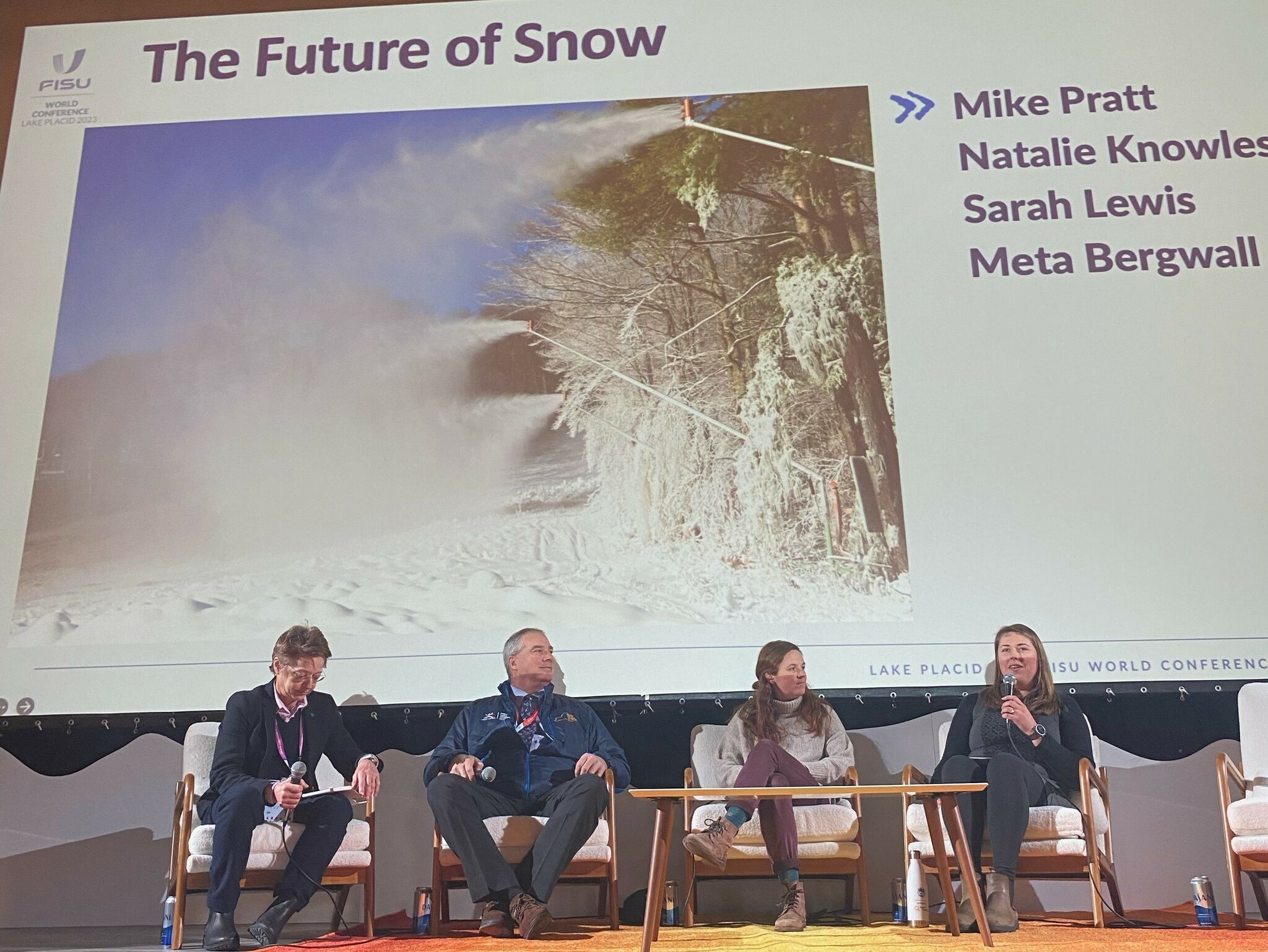“Why do we love snow so much? What’s the attraction of it?” Sarah Lewis, FISU Deputy Secretary General and Chief Operating Officer, asked her audience on the last day of the Save Winter Conference taking place as part of the 2023 Lake Placid FISU World University Games.
“On a bluebird day like Sunday, all bright and sunny with snow crystals reflecting in the light, there is no question why we love snow,” Lewis said.
“You can feel the uplifting effect on our well-being as soon as you step out the door and take a deep breath of that fresh and cold air.”
The conditions for all events happening on the third competition day of this winter’s FISU Games were excellent and attracted countless spectators to the venues to watch university students compete at the highest level.
A small group of people, however, opted not to watch the action on the field of play but rather take a seat in the Lake Placid Center of the Arts to follow a discussion about an outlook on the future.
“The future of snow” in particular, as the topic of one session was called. The focus was to address the implemented adjustments of major North American and international ski resorts to insure the existence of snow in the future, in a sustainable and responsible way.
Lewis shared the panel discussion with three experts in the field.
One of them was Meta Bergwall, Sustainability Manager at the Eastern Region Vail Resorts, who wanted to get across the message that “Vail Resorts is committed to protecting these incredible places we live, work, and play at for the future generations.”
Bergwall explained Vail Resorts’ ambitious and perhaps hard-to-reach zero-emission goal for 2027, saying “we always said, if you are not setting goals so big that you’re initially unsure how to meet them, then they are not big enough to solve climate change.”
Also on the panel were Nat Knowles, Canadian conservationist and PhD Researcher at the University of Waterloo, and Lake Placid’s own Mike Pratt, President and CEO of the Olympic Regional Development Authority.
While weather conditions are getting more extreme, dramatic and turbulent around the globe, Lewis, whose involvement in sports spans over forty years, pointed out that Lake Placid and towns alike in the Adirondack region rely heavily on snow for the livelihood of the community.
While the panel focused on the future of snow, Lewis also dared looking back in history and highlighted that right before the 1980 Olympics, Lake Placid actually was lacking natural snow, causing organizers for the first time in history to implement artificial snow production and also to be pioneers in the use of grooming machines.
“Lake Placid has always been a leader in adapting to changing situations and hosting big scale events,” Lewis said in a post-panel interview.
The former alpine skiing Olympian from Great Britain has no doubt that events like the Winter Olympics and FISU Winter Games will remain in the future.
“I think what we have to show, and we are doing this with the FISU World University Games, is that we have to be ready to adapt. The climate has changed and will remain changing. So we always have to make sure that what we are doing is appropriate to the current circumstances.”
Written by Annika Saunus, FISU Young Reporter



